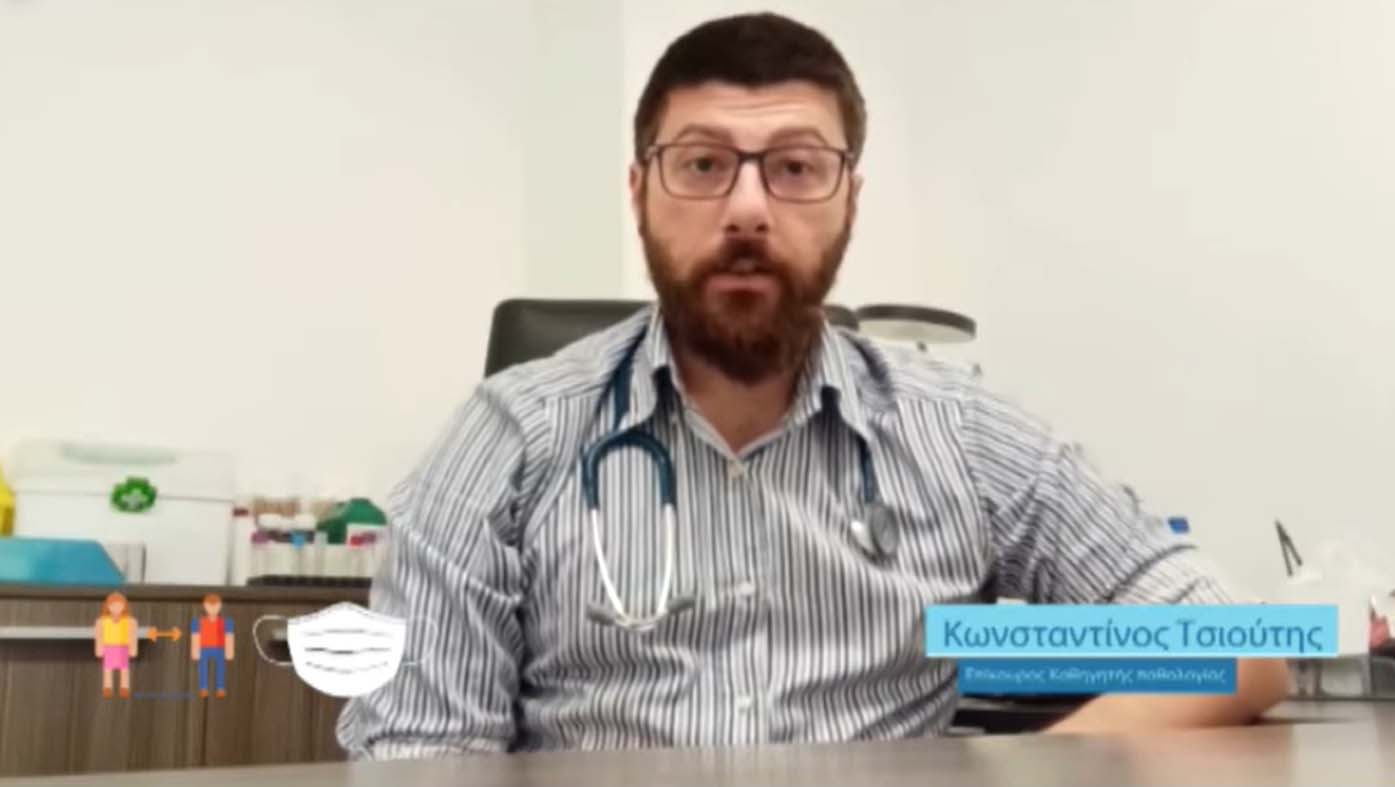A newly created Facebook page aiming to provide scientifically substantiated information to the public’s questions regarding the coronavirus pandemic seeks to help diminish people’s concerns over the coronavirus vaccines.
Hundreds of people have submitted questions regarding the pandemic and vaccinations at Let’s talk about it…It’s simple, a Facebook page launched by the patient’s association earlier this month, where a group of experts provide responses.
The questions submitted so far mainly concern people explaining their particular medical condition who receive feedback on whether they should be vaccinated, young couples and women concerned about the jab’s impact on fertility, and some who are challenging the logic behind the measures and scientists’ instructions.
“We have achieved a lot. I believe that we persuaded a lot of people to get vaccinated [through the page],” the head of the patient’s association Marios Koukoumas told the Sunday Mail.
However, the main goal of the page was to simply inform people. “We don’t blackmail or threaten anyone, nor do we want to divide people between vaccinated and unvaccinated,” the head of the association added.
The high interest can be easily explained. First of all, it is easy and harmless; all it takes is a Facebook message and the inquiry, along with the scientific response, is posted anonymously.
“A lot of people did not get the vaccine, not because they were against it, but because they had certain concerns,” Koukoumas said. They have the chance to receive clarifications by local scientists.
The ten scientists behind the page include the health ministry’s advisors and other specialists such as the head of the health ministry’s advisory team Constantinos Tsioutis, assistant professor of Internal Medicine and Infection Prevention and Control, sociology professor Constantinos Fellas, as well as paediatrician Adamos Hadjipanayis, obstetrician Constantinos Stylianides and clinical psychologist Louis Hadjithomas.
To a question regarding the state’s decision to stop providing information about the medical history of people who died from coronavirus, including whether they have been vaccinated or not, the scientists responded that the move aimed to prevent people from focusing on the deaths of vaccinated people.
Concerning the percentage of vaccination coverage to achieve herd immunity, Tsioutis answered that there is no magic number but “the more people are vaccinated the smaller will be the chance of outbreaks, the effects of the infection on our health and the need to isolate ourselves”.
In an inquiry about unvaccinated tourists who can move freely around the island using their Cyprus flight pass, Tsioutis said that since more than 95 per cent of cases are domestic, “tourism represent a very small percentage in relation to the extent of transmission”.
However, where people appear aggressive or provocative, scientists might choose to ignore their inquiries or publish them without responding.
A total of 19 questions published by the same netizen had been published without a response and later appeared to be deleted from the page.
The person had declared they had detectable antibodies for Covid-19 in their blood more than six months after they got infected and recovered from the virus, and asked why they should get vaccinated as they can fight the virus.
They also said that “only if you answer all of my questions only then I will consider whether to get vaccinated”.
Tsioutis responded that the person was not seeking answers but simply being provocative. “If you really want to get answers, you can come back with substantive questions,” the doctor said.
Commenting on the issue of elective responses, Koukoumas said “we do not interfere with scientists’ answers”.
Most questions so far have been submitted and answered in Greek, and some in English. But the association said it may respond to questions submitted in other languages as well, with the help of online professional translation pages.
Let’s talk about it…It’s simple was part of the association’s campaign initiated in the beginning of 2021 with the aim to spread awareness and share information about the coronavirus pandemic.
The association will also make physical visits to rural and remote areas where internet and social media might not be widely used by all residents, to inform and answer their questions.







Click here to change your cookie preferences